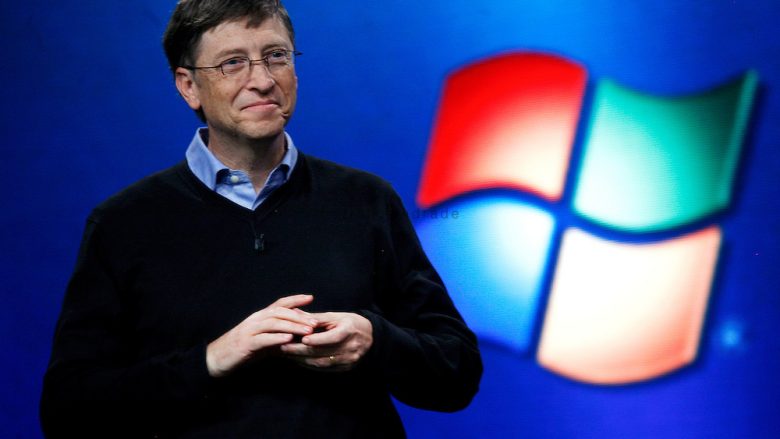Bill Gates, a name synonymous with technological revolution and unprecedented philanthropy, has long occupied, or consistently contended for, the apex of global wealth. His journey from an ardent programming enthusiast to a titan of industry and a prodigious benefactor is a compelling narrative. While innate intellect and propitious market timing undeniably played pivotal roles, his sustained success and vast accumulation of wealth are inextricably linked to a set of deeply ingrained habits. These are not mere idiosyncratic quirks but strategic disciplines, meticulously cultivated and rigorously applied, that enabled him to navigate the exigencies of a nascent industry, build an empire, and ultimately pivot towards global humanitarian endeavors. Dissecting these habits offers invaluable insights into the architecture of enduring achievement.

The Primacy of Knowledge Acquisition: A Relentless Pursuit of Understanding
At the core of Gates’s success lies an almost insatiable appetite for knowledge. This is not passive absorption but an active, relentless pursuit of understanding that informs every strategic decision.
Reading Voraciously: The Confluence of Ideas
Bill Gates is famously a voracious reader, often consuming dozens of books annually across a disparate range of subjects, from science and history to economics and biographies. This habit is not merely for leisure; it is a strategic tool. Reading broadly exposes him to a confluence of ideas, diverse perspectives, and novel solutions that transcend the confines of his immediate industry. It allows him to synthesize complex information, identify emergent trends, and anticipate disruptive forces. This continuous intellectual nourishment provides a macro-level understanding of the world, fostering a holistic perspective that is crucial for long-term strategic foresight. His personal library is a testament to this commitment, a veritable bastion of erudition.
Dedicated Thinking Time: The Solitary Sojourn of Contemplation
Beyond mere information intake, Gates notoriously schedules “Think Weeks” or “Think Days,” periods of dedicated, solitary contemplation devoid of distractions. During these solitary sojourns, he retreats to a secluded cabin, bringing with him a prodigious stack of books, research papers, and reports. This deliberate disengagement from the quotidian demands of management allows for deep, uninterrupted thought, enabling him to analyze complex problems, strategize long-term initiatives, and critically assess Microsoft’s trajectory. In an age of perpetual connectivity, this disciplined commitment to focused introspection is a potent competitive advantage, fostering clarity and strategic depth that is often absent in more reactive leadership styles. It is a testament to the power of deliberate reflection.
Strategic Acumen and Adaptive Resilience: Navigating Perpetual Disruption
The technology landscape is characterized by its incessant dynamism. Gates’s enduring success owes much to his strategic acuity and an inherent capacity for adaptive resilience in the face of relentless disruption.
Long-Term Vision with Short-Term Agility: The Dual Horizon Approach
Gates consistently demonstrated a dual horizon approach: a clear, audacious long-term vision coupled with remarkable short-term agility. While he envisioned “a computer on every desk and in every home,” he simultaneously exhibited a ruthless pragmatism in adapting to immediate market shifts. This meant being willing to pivot, to acknowledge mistakes, and to embrace new paradigms, even if they initially challenged existing business models. For instance, Microsoft’s eventual embrace of the internet, despite its initial skepticism, was a testament to this adaptive capacity. This strategic pliability allowed Microsoft to weather numerous technological transitions and remain at the vanguard of innovation, avoiding the ossification that often afflicts established enterprises.
Relentless Focus on Core Competencies and Customer Value: The Productive Obsession
Despite Microsoft’s vast diversification over time, Gates maintained a relentless focus on core competencies and delivering discernible customer value. His initial obsession with software, and later operating systems, was unwavering. He understood that true wealth creation stemmed from building indispensable products that genuinely solved problems for a massive user base. This productive obsession meant prioritizing engineering excellence, user experience, and iterative improvement over ephemeral fads. He recognized that the ultimate arbiter of success was the utility and quality perceived by the end-user, ensuring that Microsoft’s foundational offerings remained robust and continually evolved to meet market demands.
The Philanthropic Pivot: A Reimagining of Wealth’s Purpose
While not a habit in the conventional sense of daily routine, Gates’s strategic pivot towards philanthropy represents a profound and sustained commitment that has reshaped his purpose and, in a unique way, contributed to his holistic “wealth” – both personal and societal.
Strategic Philanthropy: Applying Business Acumen to Global Challenges
In his post-Microsoft leadership phase, Bill Gates transitioned from commercial dominion to strategic philanthropy on an unprecedented scale. Through the Bill & Melinda Gates Foundation, he applies the same rigorous analytical thinking, data-driven approach, and long-term vision that characterized his business career to tackle intractable global challenges like poverty, disease, and educational inequity. This is not merely charitable giving but an endeavor to solve systemic problems with systemic solutions. This strategic allocation of his immense wealth and intellectual capital towards societal betterment reflects a profound belief in the purpose of resources beyond personal accumulation. This redefinition of wealth’s ultimate utility has undoubtedly brought a different kind of richness and impact, securing a legacy far grander than mere financial metrics.
In summation, Bill Gates’s ascent to and sustained presence at the pinnacle of global wealth is attributable to more than mere fortune. It is the product of meticulously cultivated disciplines: a relentless pursuit of knowledge through voracious reading and dedicated thinking, a dual strategic approach combining long-term vision with short-term agility, an unwavering focus on core product excellence, and ultimately, a transformative pivot towards strategic philanthropy. These are not isolated attributes but interconnected habits that forged an empire and redefined the very purpose of colossal wealth, offering a compelling blueprint for anyone seeking enduring success and profound impact.